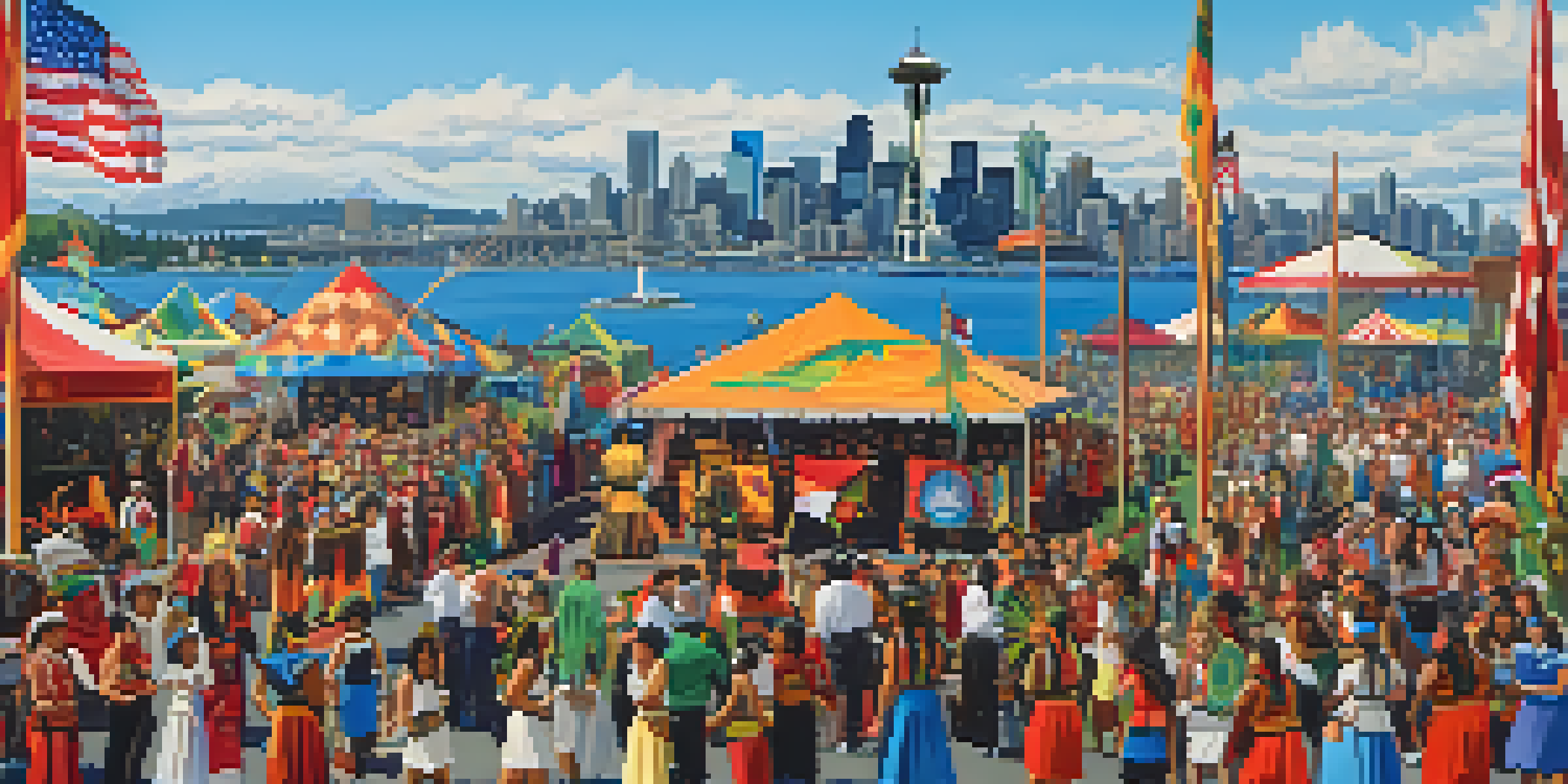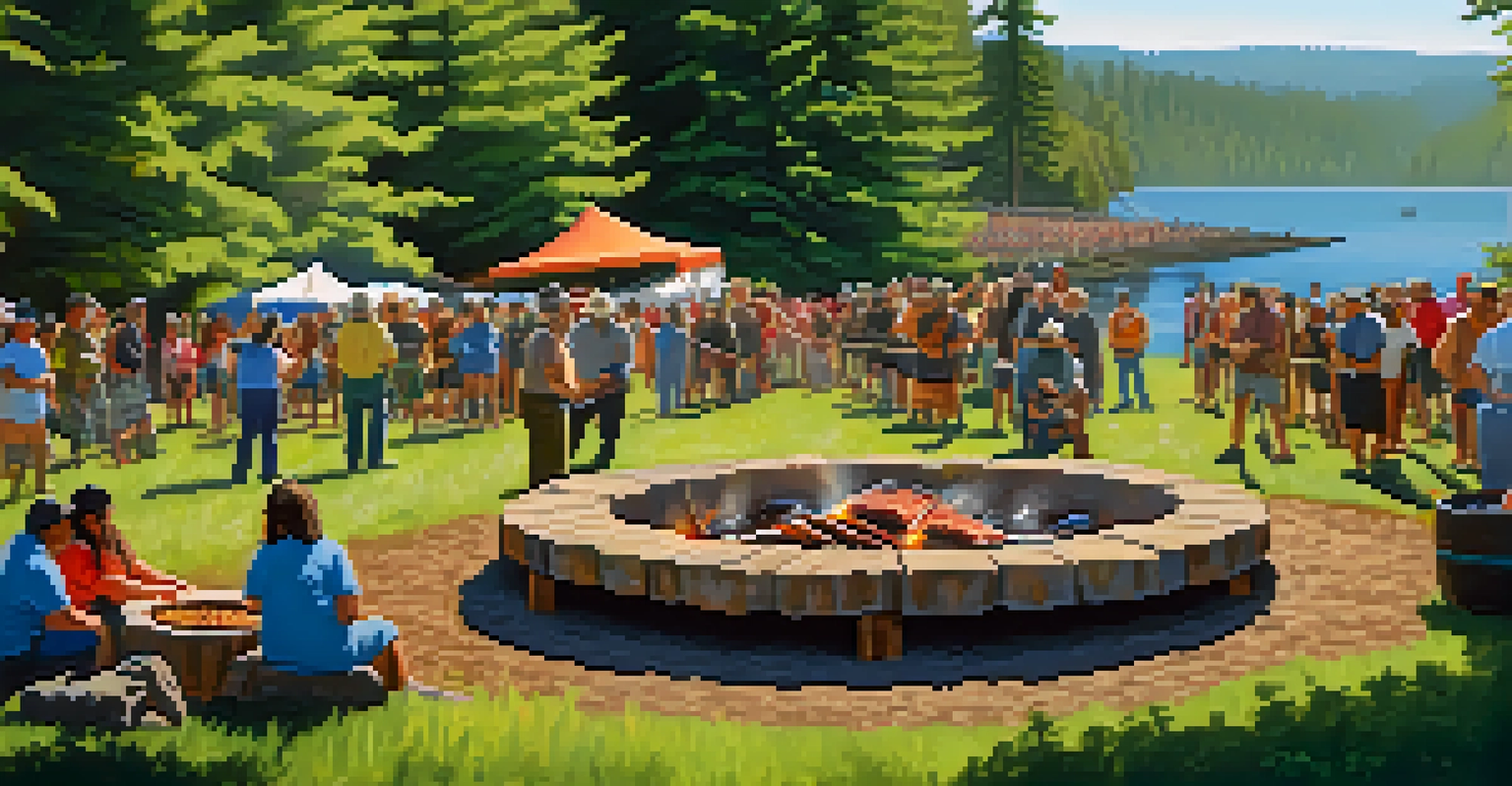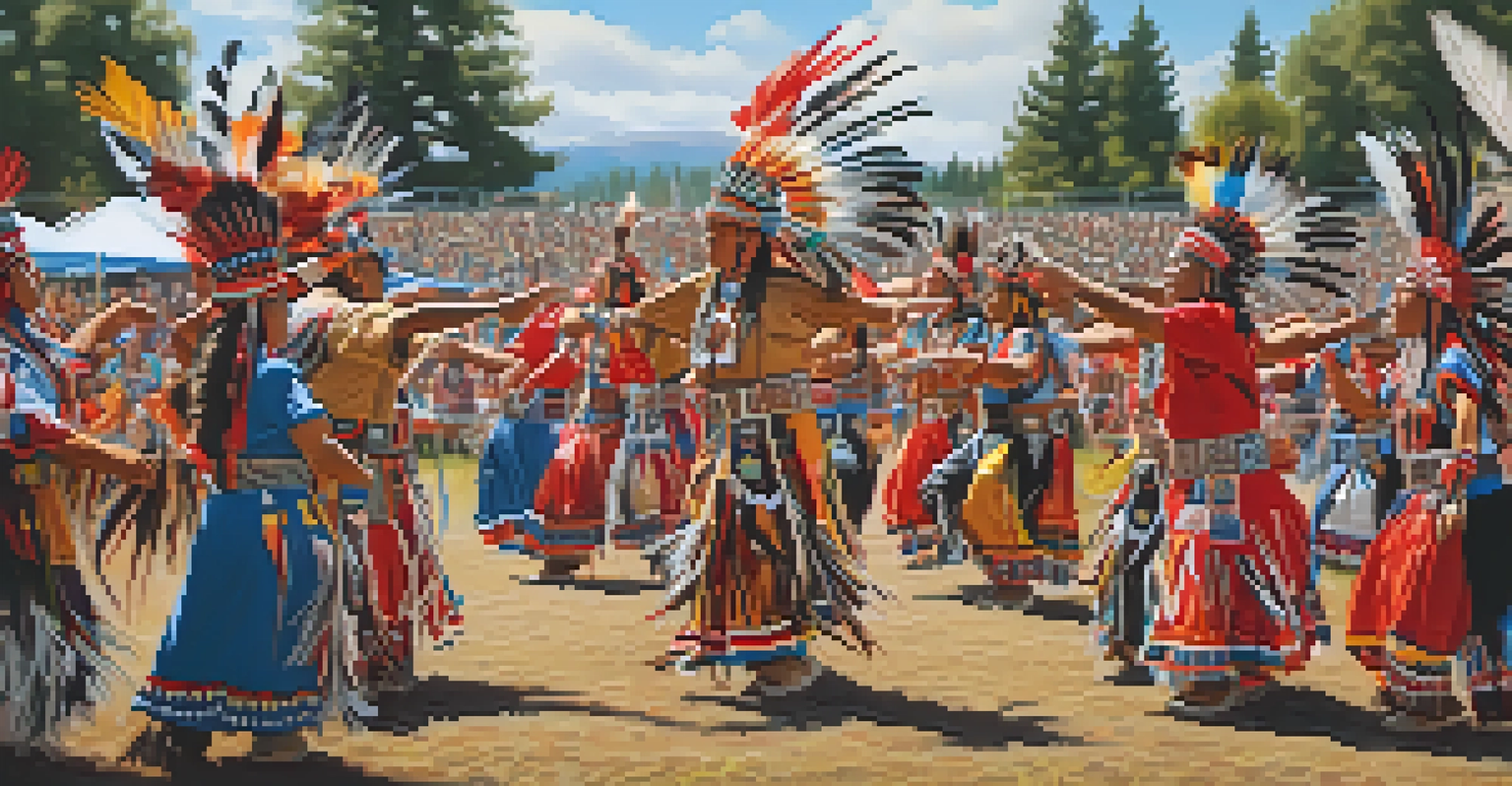Cultural Festivals Celebrating Washington's Indigenous Heritage

Understanding Washington's Indigenous Heritage
Washington State is home to a rich tapestry of Indigenous cultures, each with its own unique traditions and histories. From the Coast Salish tribes to the Yakama Nation, these communities have thrived for thousands of years, developing deep connections to the land and waters that sustain them. Understanding this heritage is crucial for appreciating the cultural festivals that celebrate it.
The preservation of our heritage and culture is essential for the survival of our people.
The Indigenous peoples of Washington have a profound relationship with nature, which is often reflected in their art, storytelling, and ceremonies. Their traditions are not just historical relics; they are living practices that continue to evolve while honoring ancestral wisdom. This cultural wealth is beautifully showcased during various festivals throughout the year.
By attending these festivals, visitors can gain insight into the vibrant customs and values of Washington's Indigenous communities. It’s an opportunity to learn about their ways of life, including their connection to the environment, which is central to their identity.
The Importance of Cultural Festivals
Cultural festivals serve as a platform for Indigenous communities to express their identity and share their stories with the wider public. These events are not only about celebration; they are also an opportunity for education and awareness. By participating, attendees can gain a deeper understanding of the challenges faced by these communities today.

These festivals often feature traditional music, dance, art, and food, allowing visitors to engage with Indigenous culture in an immersive way. For example, many festivals include storytelling sessions, where elders share tales that have been passed down through generations. This storytelling is a vital part of maintaining cultural heritage and fostering community bonds.
Celebrate Indigenous Cultures
Cultural festivals in Washington showcase the rich traditions and histories of Indigenous communities, providing immersive experiences for attendees.
Moreover, cultural festivals promote healing and resilience within Indigenous communities. They provide a space for people to come together, celebrate their heritage, and support each other in a world that often overlooks their contributions and struggles.
The Seattle Indigenous Peoples' Day Celebration
One of the most significant events celebrating Indigenous heritage in Washington is the Seattle Indigenous Peoples' Day Celebration. Held annually in October, this festival honors the history and contributions of Native Americans in the region. It serves as a powerful reminder of the resilience and ongoing presence of Indigenous communities in urban settings.
Indigenous people have the right to maintain and strengthen their distinct political, legal, economic, social, and cultural institutions.
The celebration typically features a vibrant parade, cultural performances, and educational booths. Attendees can enjoy traditional dances, music, and crafts, all while learning about the historical injustices faced by Indigenous peoples. This event fosters a sense of community among diverse groups who come together to support and celebrate Indigenous culture.
By participating in the Seattle Indigenous Peoples' Day Celebration, visitors can actively contribute to the recognition and respect for Indigenous histories. It's a unique opportunity to engage in meaningful conversations and help uplift Indigenous voices in a city that is rapidly changing.
The Puyallup Tribe's Salmon Bake Festival
The Puyallup Tribe hosts a Salmon Bake Festival each summer, celebrating the tribe's deep-rooted connection to the salmon and the waters of Puget Sound. This festival is a feast for the senses, as attendees enjoy freshly baked salmon prepared using traditional methods. It's not just about the food; it's an exploration of the tribe's cultural significance and sustainable practices.
During the festival, visitors can participate in various activities, such as traditional fishing demonstrations and storytelling sessions. These experiences allow guests to learn about the importance of salmon to the Puyallup way of life, emphasizing the tribe's commitment to preserving this vital resource for future generations. Education is key to understanding the profound relationship between the tribe and the salmon.
Festivals Promote Education
These events serve as platforms for education and awareness, helping visitors understand the challenges faced by Indigenous peoples today.
The Salmon Bake Festival also serves as a gathering place for the community, fostering connections among tribal members and visitors alike. It's a celebration of heritage, resilience, and the shared responsibility of caring for the environment—a theme that resonates deeply with all who attend.
The Yakama Nation's Annual Powwow
Each year, the Yakama Nation hosts an annual powwow that draws people from near and far. Powwows are significant cultural gatherings that celebrate Native American heritage through dance, music, and art. The Yakama powwow features colorful regalia, drumming, and a sense of community that is palpable from the moment you arrive.
This event is not only a competition for dancers but also a chance for tribes to come together to honor their traditions. Many participants showcase their unique styles, reflecting the diversity of tribal identities across the region. Visitors can feel the energy and spirit of the event, which fosters a sense of belonging and pride for all involved.
The Yakama Nation's powwow is an excellent opportunity for non-Indigenous attendees to learn about the history and culture of the Yakama people. Engaging with the community and participating in traditional dances can help bridge cultural gaps and promote understanding, making it a valuable experience for everyone.
The Makah Tribe’s Whaling Festival
The Makah Tribe, located at the northwestern tip of Washington, celebrates its rich whaling tradition with an annual Whaling Festival. This event honors the tribe's historical connection to the ocean and its marine resources. Attendees can witness cultural demonstrations, traditional songs, and dances that pay tribute to the tribe's heritage.
The festival also emphasizes the importance of sustainability and respect for marine life. The Makah have long been advocates for responsible whaling practices, and this event serves as a platform to educate the public about their ongoing efforts to balance traditional practices with conservation. It’s a celebration of culture, history, and environmental stewardship.
Community Connection and Healing
Cultural festivals foster a sense of community, promoting healing and resilience while celebrating the identity of Indigenous peoples.
By participating in the Whaling Festival, visitors gain insight into the Makah Tribe's values and their deep respect for the ocean. This event fosters a sense of connection between Indigenous culture and environmental awareness, encouraging all attendees to reflect on their roles in protecting natural resources.
Preserving Indigenous Languages at Festivals
Language is a vital part of cultural identity, and many festivals in Washington incorporate Indigenous languages into their programs. This practice not only honors the language itself but also helps to keep it alive for future generations. Workshops and performances often feature storytelling and songs in Indigenous languages, showcasing their beauty and importance.
For instance, some festivals include language revitalization efforts that invite community members to participate in learning sessions. These sessions create a supportive environment where both Indigenous and non-Indigenous attendees can engage with the language, fostering a deeper appreciation for its role in cultural expression. It's a powerful way to bridge gaps and promote understanding.

By embracing Indigenous languages at these festivals, attendees contribute to the preservation of cultural heritage. This commitment to language revitalization underscores the importance of cultural festivals as spaces for education, connection, and celebration of diversity.
Conclusion: Celebrating Indigenous Heritage Together
Cultural festivals celebrating Washington's Indigenous heritage are not just events; they are vital expressions of identity, resilience, and community. They provide opportunities for education, engagement, and celebration, inviting everyone to participate in learning about and respecting Indigenous cultures. By attending these festivals, visitors can contribute to the ongoing dialogue about cultural preservation and awareness.
These events help bridge the gap between Indigenous and non-Indigenous communities, fostering understanding and respect. As we come together to celebrate the rich cultural heritage of Washington's Indigenous peoples, we also acknowledge the challenges they face and the importance of supporting their rights and traditions.
Ultimately, these festivals serve as a reminder that we are all part of a larger narrative. By honoring Indigenous heritage, we enrich our own understanding of history, culture, and community—creating a more inclusive and vibrant future for everyone.